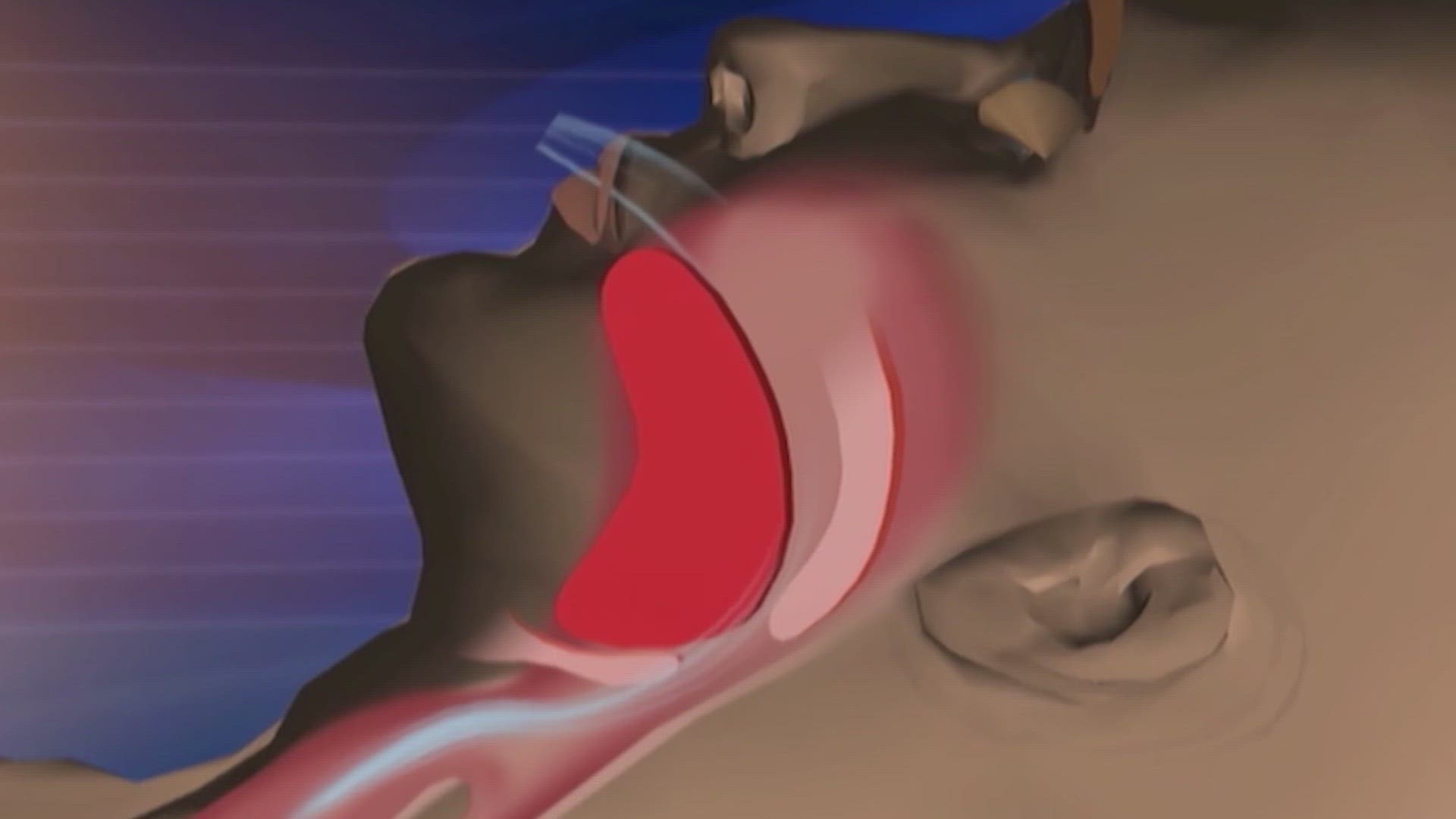HOUSTON — Sleep apnea can do more than just affect your airway, it can also affect your weight.
Chronic snoring, difficulty staying asleep or gasping for air during sleep are all signs of obstructive sleep apnea. Excessive daytime sleepiness and trouble concentrating are also signs of the sleep disorder.
"Sleep apnea is characterized by either partial or complete collapse of the airway, which results in drops in oxygen level," UT Physicians pulmonary and sleep specialist Dr. Ruckshanda Majid said.
OSA can also disrupt sleep.
"It can also contribute to cardiovascular morbidity like hypertension, heart failure, early strokes, and in some patients, irregular heart rhythms like atrial fibrillation," Majid said.
There's a linear relationship between obesity and the diagnosis of obstructive sleep apnea. About 75% of OSA patients suffer from obesity.
"Weight loss does improve OSA, in most cases. But unfortunately, the degree of weight loss that one needs to achieve to completely resolve OSA is very hard to attain. Even with bariatric surgery," Majid said.
Unfortunately, for those who have trouble sleeping, weight loss becomes much more difficult.
"There are studies that have shown that not getting enough sleep does contribute to weight gain. That is a result of a couple of hormones, actually," Majid said.
The hormones increase one's appetite and cause cravings for salty foods and anything high in carbohydrates.
The only available treatment for OSP is a machine patients wear during sleep known as C-Pap.

